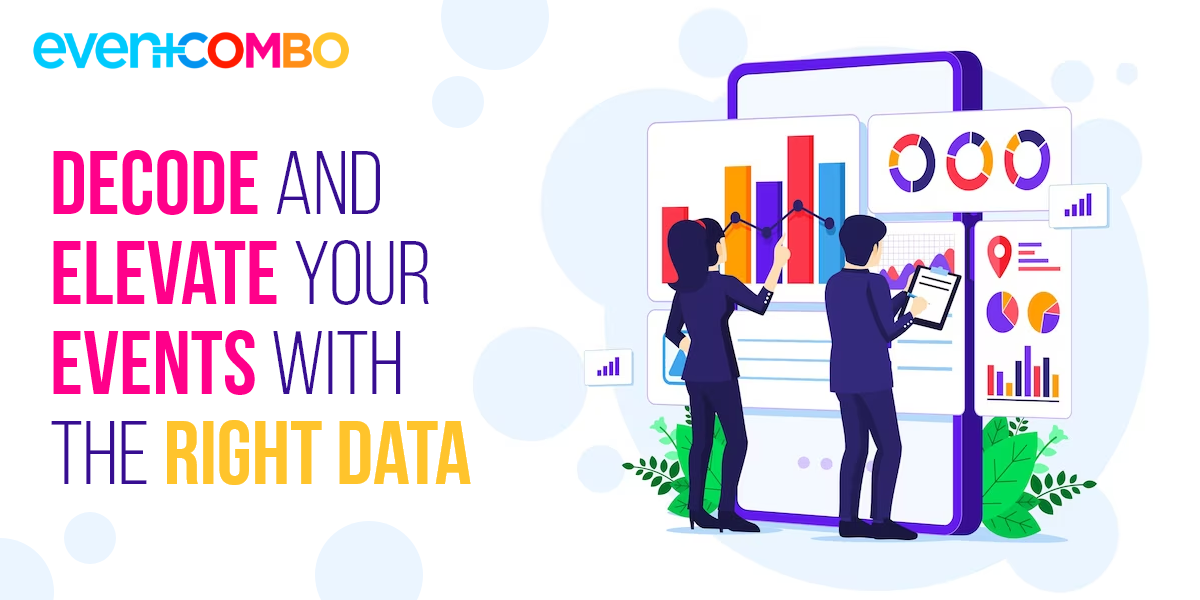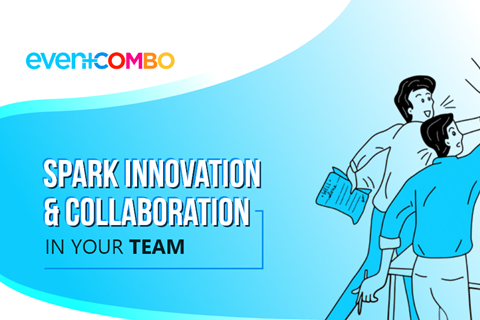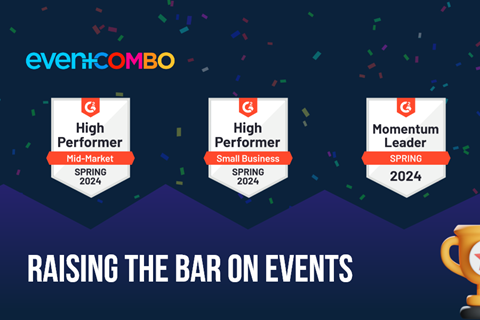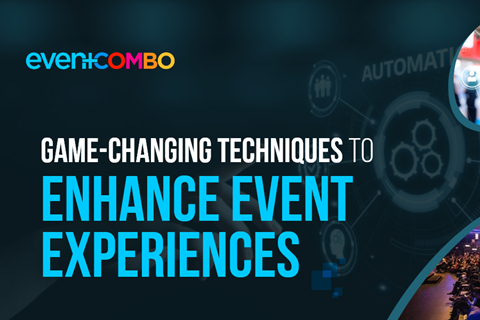Leveraging Event Analytics for Crafting Impactful Future Experiences

Mar 01, 2024 Shruti Shah
In today's landscape, the value of a successful event extends far beyond its execution. It's no longer sufficient to simply organize and execute flawlessly; true success lies in the ability to gather and analyze data effectively. Event organizers are increasingly leveraging the power of data and analytics to gain invaluable insights that drive future success. From tracking clicks on email invites to analyzing attendee engagement and revenue generation, every facet of an event can be quantified and scrutinized to refine strategies and optimize outcomes.
In this blog, we explore how harnessing event analytics transforms data into a roadmap for higher-performing, goal-oriented future events.
Understanding Event Analytics
Event analytics goes beyond mere terminology or passive data review. It represents a sophisticated approach to gathering, interpreting, and leveraging data before, during, and after an event. This method, facilitated by cutting-edge AI-powered event technology and supported by the right event management software, involves the collection and analysis of various metrics. These metrics encompass registration numbers, ticket sales, attendee demographics, session attendance, social media engagement, and post-event surveys. Through this process, organizers can gain a comprehensive understanding of attendee behavior, preferences, and overall event performance.
Learning from the Past to Shape the Future
Picture a trade show where organizers noticed a drop in attendee engagement during certain sessions. Through detailed analytics, they discovered that these sessions overlapped with popular networking opportunities, leading to a scheduling conflict for attendees. Now knowing this, they adjusted the event schedule for the next event, ensuring maximum participation and satisfaction.
Recapping an event isn't a bland routine post-mortem exercise - it's a detailed assessment of success against predefined objectives and Key Performance Indicators (KPIs). Here's how event analytics and data can help you conduct a thorough recap:
- Attendance Metrics: Dive into registration numbers, ticket sales, and actual attendance to gauge overall turnout. By comparing these figures to past events, you can spot trends and patterns that help in future planning.
- Engagement Levels: Measure attendee engagement across sessions, workshops, and networking activities. Tools such as session check-ins, surveys, and social media monitoring provide insights into interest and participation levels.
- Revenue Generation: Evaluate revenue streams like ticket sales, sponsorships, exhibitor fees, and merchandise purchases. Understanding which sources contribute most to revenue helps identify areas for improvement and growth.
- Content Performance: Assess the popularity and effectiveness of event content through session feedback, audience interactions, and post-event surveys. This insight helps you tailor future content strategies to meet attendee preferences.
- Social Media Impact: Monitor social media activity surrounding the event, including mentions, hashtags, and user-generated content. Analyzing sentiment and engagement metrics gives you a sense of the event's online reach and impact.
Planning for the Future by Leveraging Insights
Armed with data-driven insights, event organizers can chart a course for future success. Now let's say a music festival experienced a surge in social media mentions following a surprise guest performance. By analyzing these mentions, organizers were able to identify key influencers within their target audience and pitch for partnerships for future promotional campaigns, ultimately driving ticket sales and enhancing the festival experience for attendees.
Using insights from event analytics, organizers can make data-driven decisions to enhance future events. Here's how to leverage data for strategic planning:
- Refine Target Audience
Utilize demographic data and attendee feedback to gain deeper insights into your target audience. By understanding their preferences and expectations, you can tailor marketing efforts and event offerings accordingly. Delve into attendee feedback and engagement metrics to identify what resonated most with your audience. Armed with this insight, fine-tune your content, speakers, and agenda for future events, ensuring maximum impact and satisfaction.
- Optimizing Resource Allocation
Analyze resource utilization and Return on Investment (ROI) to identify areas for enhancement and optimize budget allocation. Whether it's investing in targeted marketing campaigns or improving onsite amenities, data-driven insights guide strategic decisions that maximize resource efficiency and aim for better logistics management.
- Optimize Event Schedule
Evaluate session attendance and feedback to pinpoint peak times and popular topics. If you have previous event data, compare it with the time of year and demographics that have had the highest registration and attendance. Adjust the event schedule accordingly to maximize attendance and engagement, ensuring a more impactful event experience for attendees.
- Fine-Tuning Marketing Strategies
Assess the effectiveness of marketing efforts by analyzing campaign performance and attendee demographics. With this knowledge, refine targeting strategies, personalize messaging, and drive higher ROI for future events. Determine which channels of marketing worked, correlate them with the click-throughs, email opening rate, etc., to refine further.
- Strengthen Sponsorship Opportunities
Sponsors want data to make decisions. Provide sponsors with detailed analytics showcasing the value of their investment. Highlight key metrics such as brand exposure, booth traffic, and lead generation to attract and retain sponsors for future events, fostering strong and lasting partnerships.
- Improve Operational Efficiency
Identify areas for operational enhancement based on attendee feedback and logistical challenges. Streamline processes, optimize resource allocation, and leverage technology to enhance the overall event experience, ensuring smoother execution and greater attendee satisfaction.
- Mitigating Risks and Challenges
Learn from past challenges and logistical hurdles to proactively address potential risks. Whether it's optimizing venue logistics, enhancing security measures, or improving attendee communication, data-driven insights help mitigate risks and ensure seamless execution, leading to a more successful event overall.
In today's data-driven world, event planners no longer rely on chance for success—it's cultivated through strategic analysis and informed decision-making. By harnessing the power of event analytics and data, organizers can unlock valuable insights into attendee behavior, enabling them to enhance future events significantly. Embrace event analytics as your trusted ally in planning for even greater success in your upcoming events.
Explore customized reporting and AI driven analytics with Eventcombo - https://bit.ly/3R9bkuP
close








